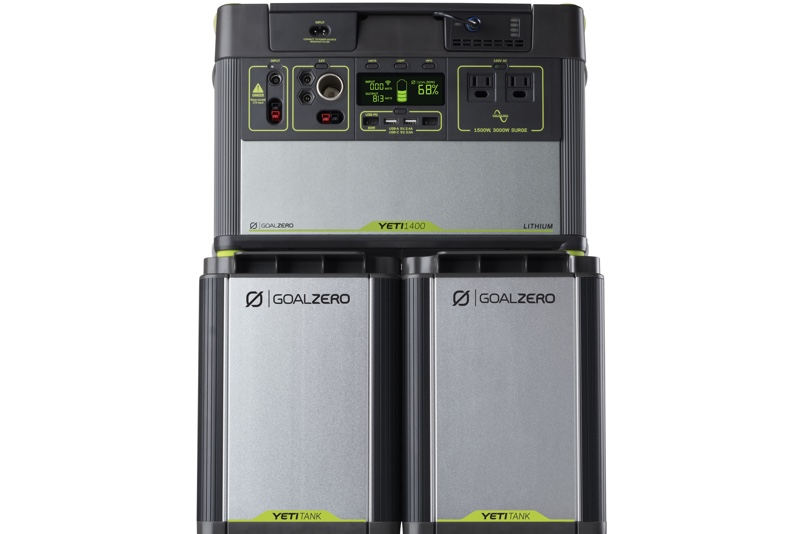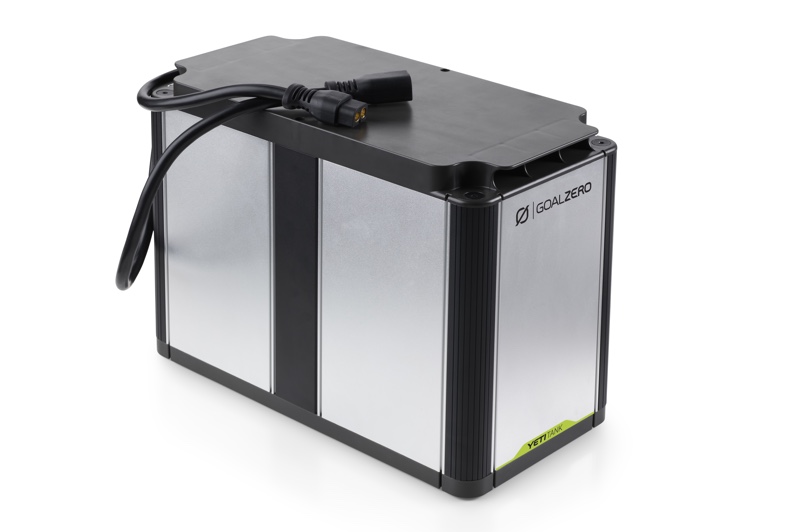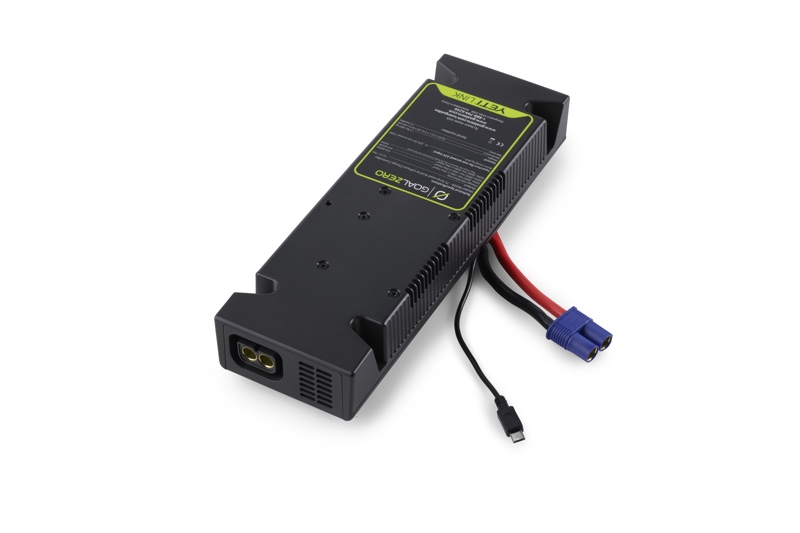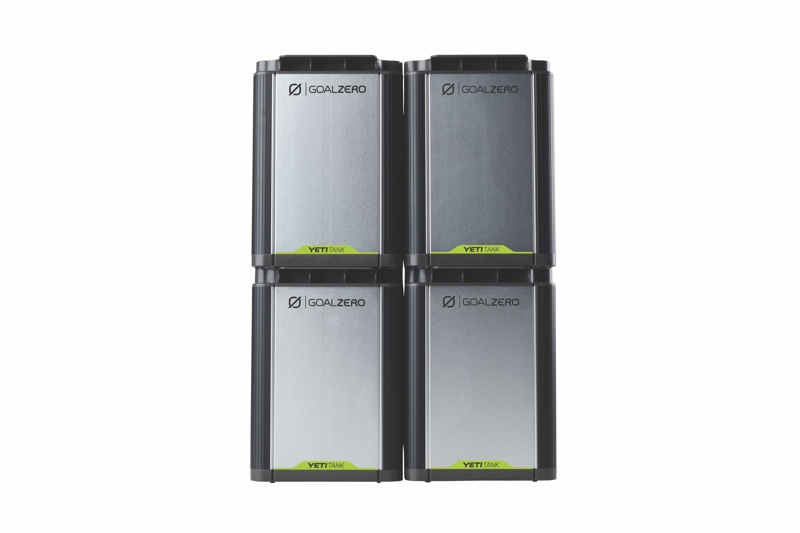Goal Zero has always been at the forefront of both mobile and home power storage solutions. Almost since its inception back in 2007 the company has offered a host of portable power stations and USB battery packs, all of which conveniently charge using its line of solar panels. Today, at the Consumer Electronics Show in Las Vegas, Goal Zero has taken the wraps off an array of new products, including a home power storage system that greatly expands the capacity of its existing products.
The new Yeti Tank and Yeti Link work in conjunction with Goal Zero’s line of portable power stations, giving users a simple, easy-to-assemble solution for expanding their emergency power storage options at home. The Yeti Link is an add-on module that allows owners of Yeti Lithium 1000 Power Stations or larger to daisy chain batteries to one another, even if those batteries use a different type of chemistry. This means the Yeti Link would allow both lithium batteries and lead-acid power cells to work in conjunction with one another to store additional energy. The Link reportedly plugs directly into the power station’s expansion port, providing functionality that hasn’t been available at the consumer level before.
Meanwhile, the Yeti Tank is a battery expansion system for use with Goal Zero power stations. By plugging one of these batteries into a Yeti Lithium 1000 or larger the user gets an instant upgrade to their power storage capacity. The Tank, which uses a cost-effective lead-acid battery, can be charged either from a wall outlet or a solar panel while attached to the power station. Additional Yeti Tanks can be connected to one another to build a large-capacity emergency back-up power system for the home.
Both the Yeti Tank and Yeti Link will be available in May and will be priced at $399 each.

Goal Zero also showed off its updated line of Flip Power Banks at CES 2019 as well. The new versions retain the sleek design and stand-out colors of the originals, but now come with increased battery capacities. The Flip 12 offers 12 watt-hours (3350 mAh) of capacity, while the Flip 24 and 36 up those numbers to 24 Wh (6700 mAh) and 36 Wh (10,050 mAh) respectively. The battery packs will also ship in May and will sell for $25, $35, and $45.

Finally, Goal Zero has also announced a new addition to its portable solar panel catalog. The new Nomad 5 is a small, lightweight solar cell that generate up to 5 watts of power using light from the sun. It comes with a built-in kickstand to help find the best angle for collecting solar energy and it has a USB port for charging devices directly. The Nomad 5 is also built to work with Goal Zero’s USB battery packs for power storage on the go and is durable enough to take camping, backpacking, or traveling. It will be available in May at a price of $60.
For more information visit Goal Zero’s website.






